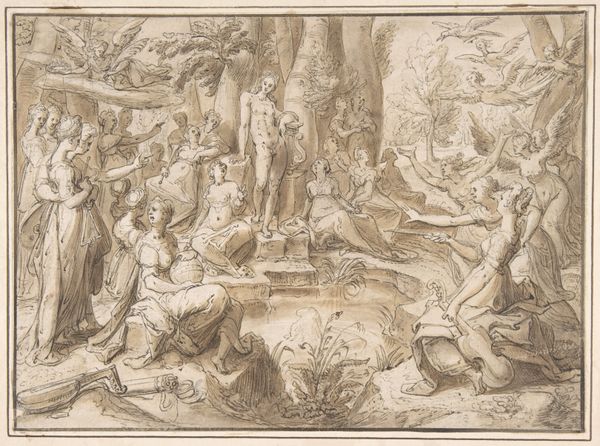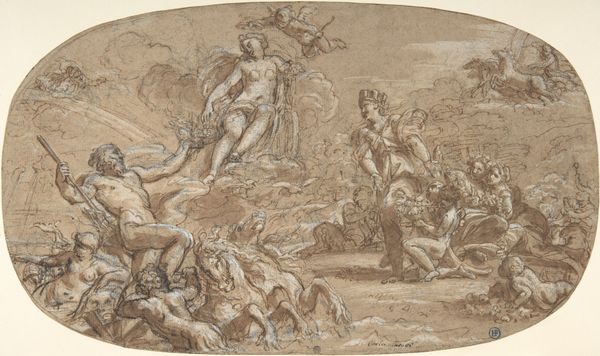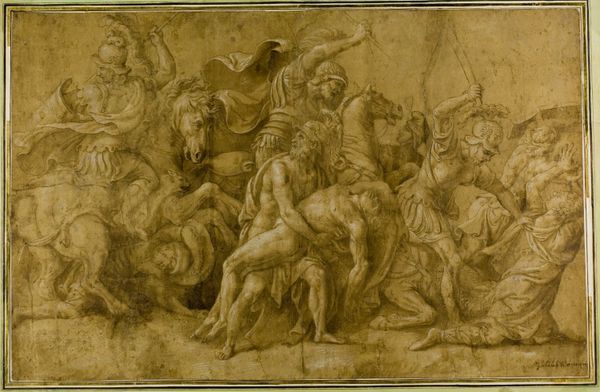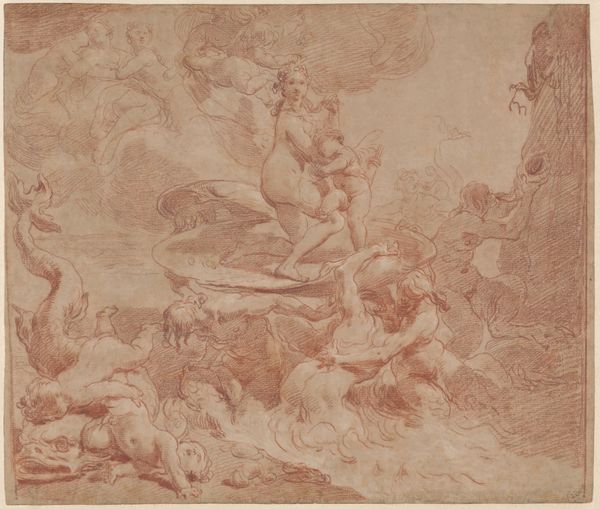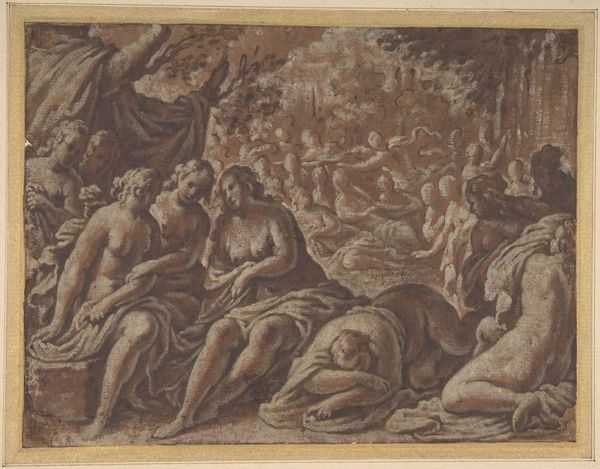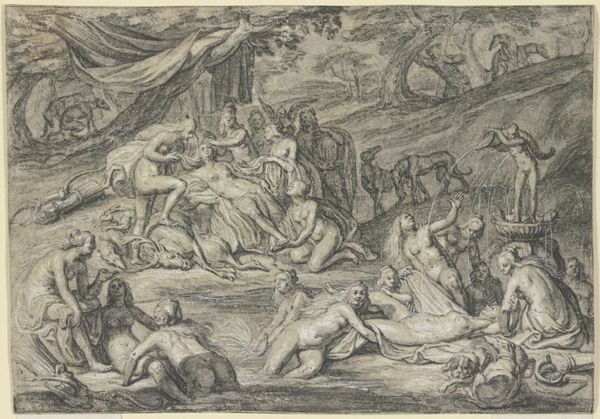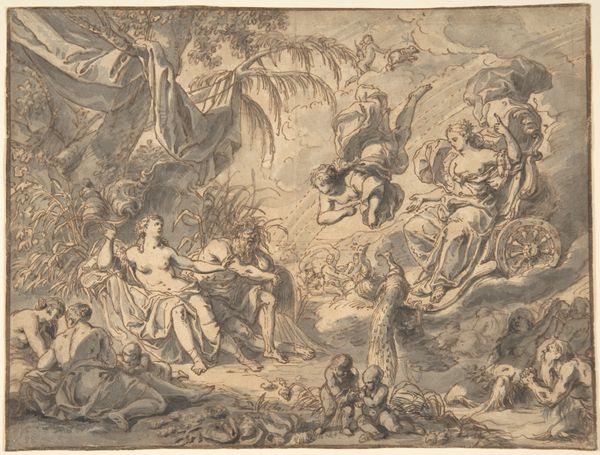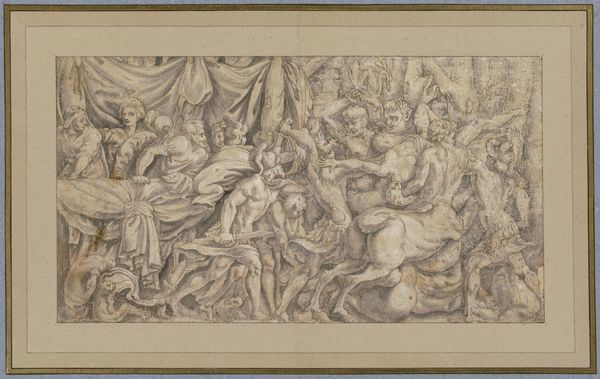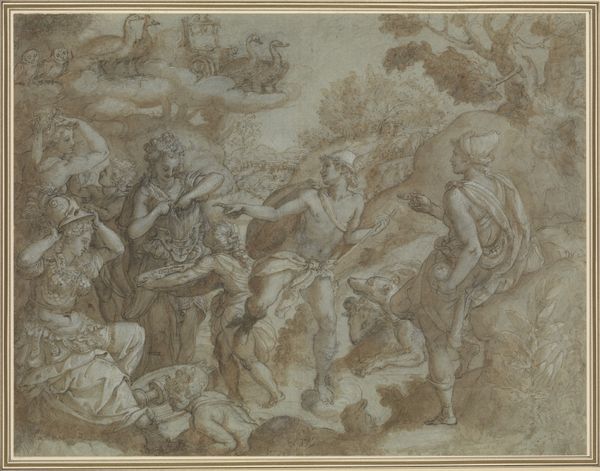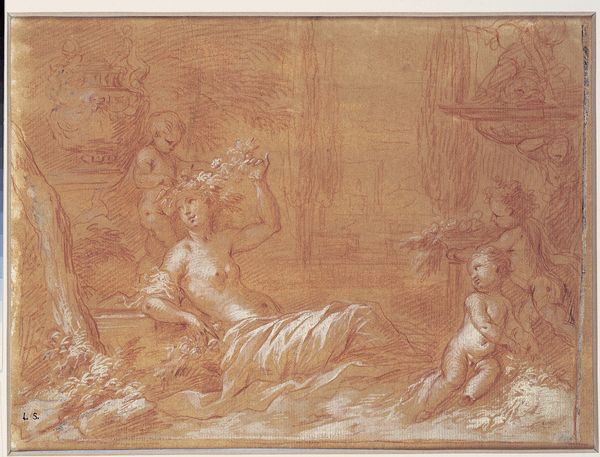
drawing, paper, ink
#
drawing
#
netherlandish
#
toned paper
#
baroque
#
landscape
#
figuration
#
paper
#
ink
#
14_17th-century
#
history-painting
Copyright: Public Domain
This is Anthonis Sallaert’s rendition of Aeneas leaving Dido, made sometime in the 17th century. Here, we see Dido, Queen of Carthage, dramatically succumbing to her sorrow, a poignant display of unrequited love and abandonment. Note Cupid nearby, his presence a symbol of love's capricious nature. This motif of the forsaken lover appears throughout art history; consider Medea, betrayed by Jason, or Ariadne, left by Theseus. Dido's pose, collapsed and grief-stricken, is reminiscent of classical depictions of mourning figures, echoing gestures seen in ancient sarcophagi and funerary monuments. This connection illustrates the powerful link between personal grief and collective memory. The motif transcends time, reappearing in various forms, each iteration colored by its own cultural and historical context. Observe how the emotional intensity captured here engages the viewer on a deeply subconscious level, triggering empathy and reflection on the universal themes of love, loss, and the human condition. This is not merely a scene from Virgil's Aeneid; it is an exploration of the enduring power of human emotion, a testament to the cyclical nature of history.
Comments
No comments
Be the first to comment and join the conversation on the ultimate creative platform.

